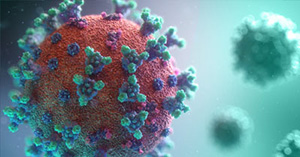Intermediate Reading Course. Section 2: Study Skills in Reading
Outlining the Text as a Study Skill
Course Navigation
Outlining is a way to summarize large amounts of information visually. Especially when used with note-taking and annotating, outlining can be a powerful study skill.
It also helps you engage with the content more deeply as you must understand it to be able to outline it.

Kaleidico | Unsplash
How to Outline Effectively
Examine the sample paragraph below and how it can be outlined. Notice that going over the outline gives you all the key points in the paragraph at a glance.
Sample listing paragraph and outline
Transmissible diseases, also known as communicable diseases, are illnesses that can be spread throughout a community. They are transmitted in three main ways. Transmissible diseases can be spread through direct contact with an infected person through physical contact. They can also be spread indirectly through contact with contaminated objects. That is why it is important not to share personal items or wash your hands when touching surfaces. Airborne transmission occurs when you breathe in droplets from an infected person's cough or sneeze. Even talking can produce such droplets, which carry disease-causing germs. Other modes of transmission include vector-borne transmission through insect or animal bites, food- or waterborne transmission through contaminated food or water, and vertical transmission when, for example, a mother transmits a disease (e.g., rubella) to a child during pregnancy, childbirth, or breastfeeding.

Fusion Medical Animation | Unsplash
One Possible Way to Outline This Paragraph
DEFINITION. Transmissible or communicable disease — illnesses that can be spread
3 MAIN MODES OF TRANSMISSION
- Direct contact. Direct contact with an infected person; person-to-person.
Examples: physical touch
- Indirect contact. contact with contaminated objects, surfaces
Examples: sharing personal items, touching surfaces
- Airborne. breathing in droplets from infected person
Examples: infected coughs, sneezes; talking
OTHER
- Vector-borne. Insect/animal bites
- Food- or waterborne contaminated food/water
- Vertical transmission. mother → child (during pregnancy, childbirth, breastfeeding)
Important Note: Highlighting the text is helpful to draw your attention to the important details (i.e., the modes of transmission in this case); however, it is much easier to review all the information looking at the outline.
Up Next: Summarizing Paragraphs and Passages as a Study Skill
Go to the next lesson to learn about summarizing as a study skill.